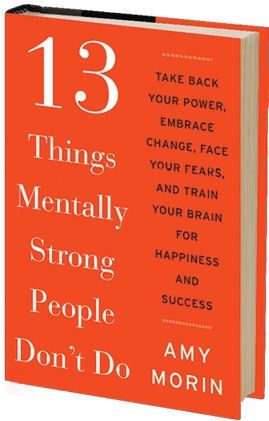Motivation
5 Signs You're Trying too Hard to Please Everyone
It's hard to look out for yourself when you have no boundaries.
Posted August 13, 2015

People-pleasing isn't inherently a bad thing—it's healthy to want to please your family or your supervisors. But there are times when your desire to please others can become problematic. Here are five signs that your efforts to be a people-pleaser have become unhealthy:
1. You Can't Say No
Saying yes to everyone's requests means you're saying no to something else. Whether your willingness to volunteer for a committee takes time away from your family, or your inability to say no to a neighbor's dinner invitation means you won't have time to go to the gym, saying yes to everything has consequences.
Tip: If yes has become your automatic answer, start saying, "I'll have to look into that and get back to you." Then, take a few minutes to consider what you want to do before you make any promises.
2. You Struggle to Make Decisions
If you're used to answering questions based on what you think other people want to hear, you'll likely have difficulty making decisions. Everything from choosing a new pair of shoes to deciding where to eat lunch can seem like a life-altering choice when you've allowed other people's opinions to drown out your own voice.
Tip: Make self-awareness a priority. Start paying attention to your likes and dislikes. Get to know which activities help you feel most alive and which drain your energy. With practice, you'll develop an increased awareness of your opinions.
3. You Don't Ask for Help
Sometimes the people who are most likely to say yes to everyone else's requests are the least likely to ask others for help. If you struggle to ask for help—even with little favors or small tasks—you may be missing out on a lot of opportunities in life.
Tip: Set out to make one simple request per day—even if it's as simple as asking a friend to proof-read an email or a co-worker to save you a seat at a meeting. The more you do it, the more comfortable you'll get asking for help.
4. You Aren't Living According to Your Values
If you invest all your energy into doing what you think others want, it's impossible to live according to your own values. If you value time with your children, yet you can't say no to a friend who always asks for favors, you'll struggle to do the things that are most important to you. There are only so many hours in the day, so it's important to invest your time doing the things that matter most to you.
Tip: Examine how you spend most of your time each day and consider whether you're really devoting enough energy to the things that are most important to you. If not, establish goals that will help you start living more in sync with your values.
5. You Don't Set Healthy Boundaries
Whether you can't say no to a friend who constantly asks to borrow money, or you're afraid to speak up when your mother-in-law meddles in your marriage, unhealthy boundaries can wreak havoc on your life. When you let other people infringe on your time and space, you're likely to grow resentful toward them.
Tip: Refuse to let people take advantage of you. Take back your power and accept that speaking up may cause people to become angry with you. Over time, you'll see that displeasing people isn't as bad you imagined.
Find the Strength to Be Your Best
It's impossible to feel mentally strong when all your energy goes toward pleasing everyone around you. The good news is you don't need permission from anyone else to take steps toward becoming the strongest and best version of yourself.

Amy Morin is a psychotherapist, keynote speaker and the author of 13 Things Mentally Strong People Don't Do, a bestselling book that is being translated into more than 20 languages.
To learn more about Amy's personal story behind the book, watch this video trailer.


